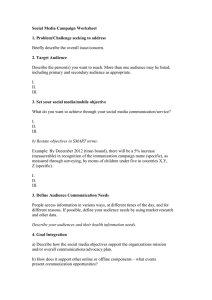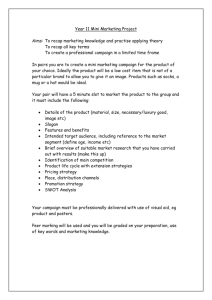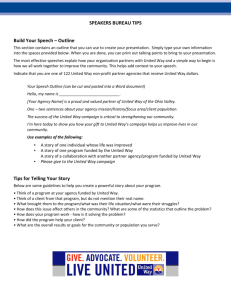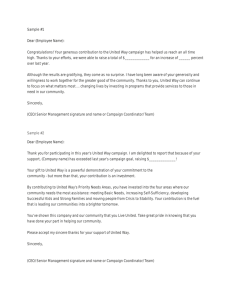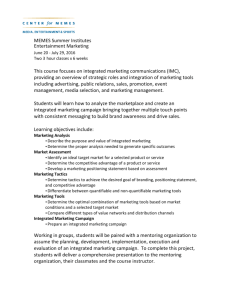5 Key Benefits of a Business Marketing Plan
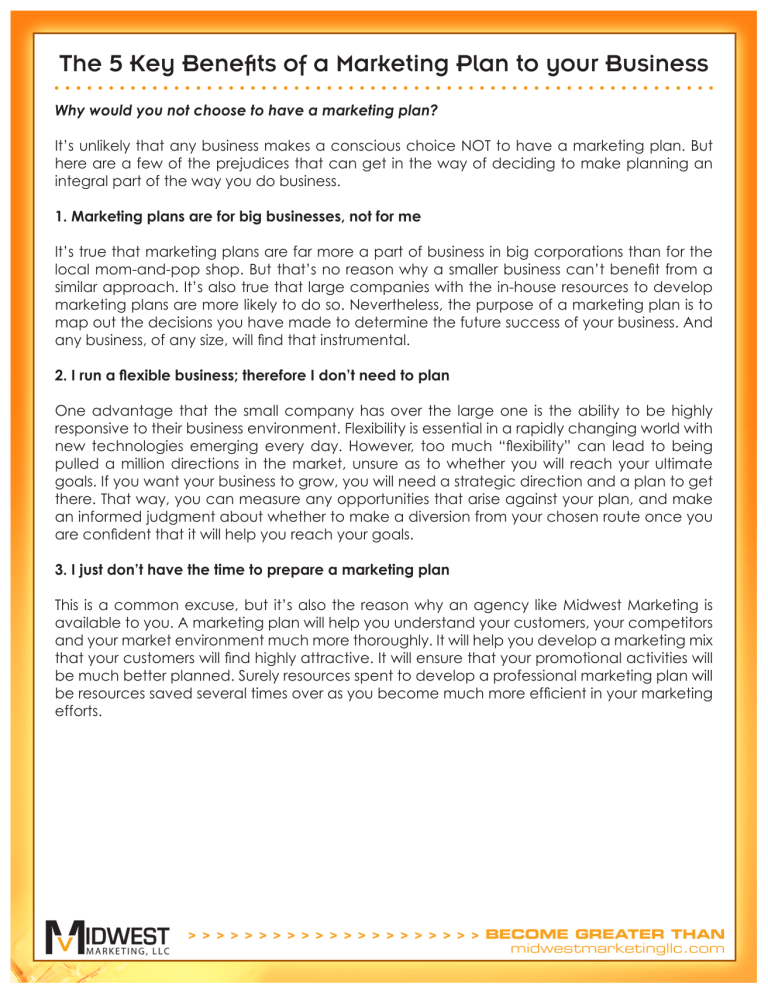
The 5 Key Benefits of a Marketing Plan to your Business
Why would you not choose to have a marketing plan?
It’s unlikely that any business makes a conscious choice NOT to have a marketing plan. But here are a few of the prejudices that can get in the way of deciding to make planning an integral part of the way you do business.
1. Marketing plans are for big businesses, not for me
It’s true that marketing plans are far more a part of business in big corporations than for the local mom-and-pop shop. But that’s no reason why a smaller business can’t benefit from a similar approach. It’s also true that large companies with the in-house resources to develop marketing plans are more likely to do so. Nevertheless, the purpose of a marketing plan is to map out the decisions you have made to determine the future success of your business. And any business, of any size, will find that instrumental.
2. I run a flexible business; therefore I don’t need to plan
One advantage that the small company has over the large one is the ability to be highly responsive to their business environment. Flexibility is essential in a rapidly changing world with new technologies emerging every day. However, too much “flexibility” can lead to being pulled a million directions in the market, unsure as to whether you will reach your ultimate goals. If you want your business to grow, you will need a strategic direction and a plan to get there. That way, you can measure any opportunities that arise against your plan, and make an informed judgment about whether to make a diversion from your chosen route once you are confident that it will help you reach your goals.
3. I just don’t have the time to prepare a marketing plan
This is a common excuse, but it’s also the reason why an agency like Midwest Marketing is available to you. A marketing plan will help you understand your customers, your competitors and your market environment much more thoroughly. It will help you develop a marketing mix that your customers will find highly attractive. It will ensure that your promotional activities will be much better planned. Surely resources spent to develop a professional marketing plan will be resources saved several times over as you become much more efficient in your marketing efforts.
Now that we’ve covered some of the common misconceptions, here are “The 5 key benefits of a marketing plan to your business.”
1. A marketing plan makes sense of your business environment
When developing your marketing strategy you need to account for your customers, your competitors, and all of the factors that could impact your ability to operate in the marketplace: the social, legal, economic, political and technological issues that affect your business. The likelihood is that these will be a complex mix, even more so as you look towards the future.
Some aspects will be more important than others, and the process of developing a marketing plan will help you decide where you should place your priorities.
2. A marketing plan enables clear decision making
Having determined what factors will affect your business and evaluating what resources you have to deal with them, you are now able to make all the marketing decisions you need. Are your products really meeting your customers’ needs, or should you be developing new ones?
Are your prices right in your market? Do you need extra staff or should you outsource some services? Do you need a PR campaign, an advertising campaign, or a direct mail campaign, among others? These questions suddenly become much easier in the context of a marketing plan with clear objectives, timeframes, and budget.
3. A marketing plan integrates long term planning and short term implementation
Your marketing plan should think 3-5 years down the road, giving you the ability to look ahead and be prepared to meet any changes when they occur. It won’t be set in stone, though. You should revisit your marketing plan regularly – how frequently will depend on the nature of your business and the extent to which the factors affecting it change – and make sure it remains relevant to the marketing sphere in which you operate. At a more detailed level your annual plan will merge with your strategic plan, ensuring that every action you take is geared towards achieving your end goals.
4. A marketing plan prevents panic decisions
The flip side of this coin, of course, is that a forward looking marketing plan will give you as clear a view as possible of what is going on in the market place, as well as providing you with a framework in which to make any decisions to deviate from your plan. Sometimes there will be occasions when you want to change course. But the framework that the plan provides will mean that you will not be taken by surprise by market developments, or be pushed off course by unexpected developments.
5. A marketing plan is a working document
A marketing plan is no substitute for a crystal ball – but those don’t even exist. A regular review of your plan to ensure that you are following it and to check that what you are following should not have changed is essential. But that doesn’t mean that your plan should only be evaluated once a year at annual review time. Indeed, as a working document, you should refer to it whenever you have a marketing decision to make and revise it whenever you identify a shift in your market.
In Conclusion
Above are five key reasons why you should take your marketing planning seriously and see some impressive results for your business. Isn’t it time you had a marketing plan of your own? If you would like help developing your marketing plan, contact Midwest Marketing at (605) 716-
5666 or online at midwestmarketingllc.com.
